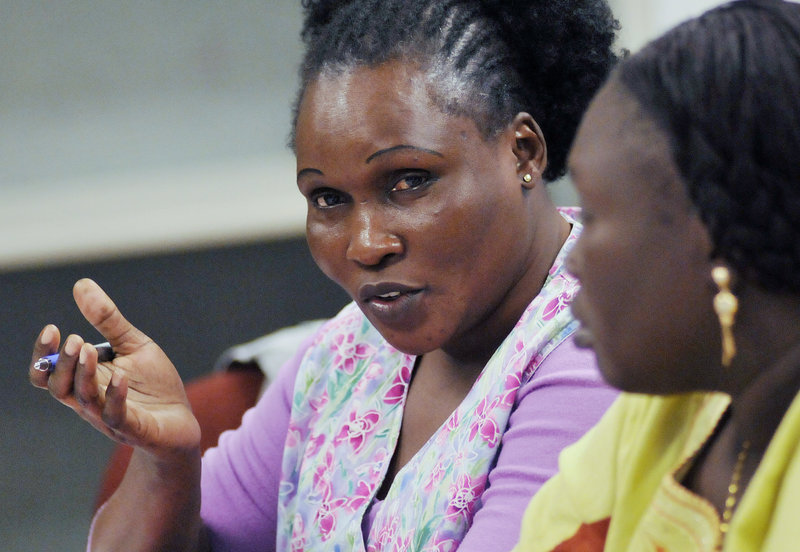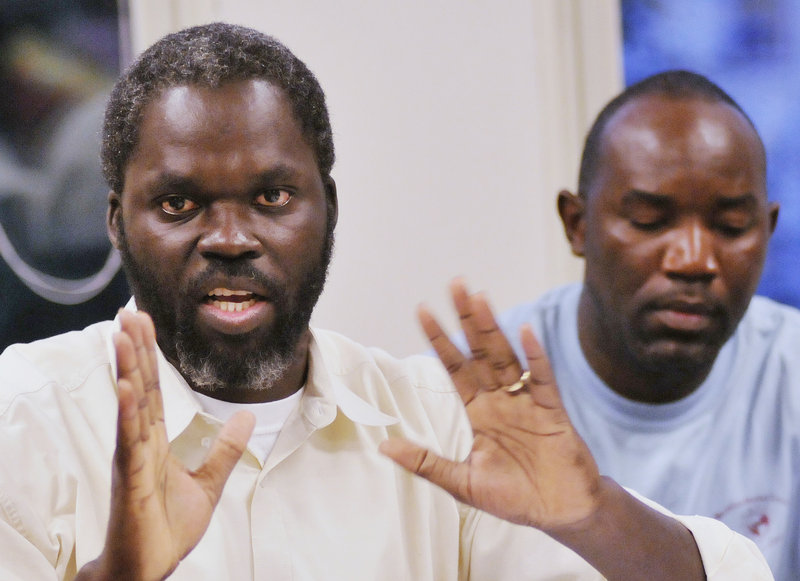For a small group in Maine, an upcoming vote could have vastly more significance than who wins this fall’s race for governor.
Maine’s Sudanese community is gearing up for a referendum in January to decide whether Southern Sudan will secede or whether the Sudan that has existed since 1947 — Africa’s largest country — will remain unified.
“Many people feel this is a once-in-a-lifetime chance, and if you blow it, it will take another revolution” for the south to become independent, said Lado Ladoka, one of the organizers of a daylong conference planned Saturday at Portland High School. The conference will explore the referendum and its implications for people in the United States.
Ladoka, who is from Southern Sudan and works for the Portland-based Center for the Prevention of Hate, said the conference will benefit non-Sudanese who want to learn about the referendum. Sudanese people already follow political dynamics back home very closely, he said.
“The people here in Portland are first generation. They basically have a fresh memory of what happened and brought them to the United States,” he said.
Sudan has plentiful natural resources, many of them in the underdeveloped south. It has been a front in the battle against terrorism, at one point hosting Osama bin Laden before urging him to leave in 1996.
Northern Sudan is predominantly Muslim and Arab. The south is mostly indigenous Africans who are Christian.
Sudanese started coming to Portland in 1990 as refugees from the civil war between the north and south. Most still have family members there and consider Sudan their homeland. Several have returned there since the Comprehensive Peace Agreement between the north and the south was signed in 2005.
Organizers of the conference say they believe that most people from Southern Sudan support secession, though there is anxiety and uncertainty. There is the potential for renewed conflict, whatever the vote’s outcome.
The country’s natural resources include oil, most of which is in the south. The refineries are in the north, so future economic integration is likely, said Ladoka.
Everyone from Southern Sudan who is at least 18 years old has the right to vote in the referendum.
For the referendum to be valid, at least 60 percent of the Southern Sudanese who are registered to vote must participate. A majority of those voting must favor secession for it to pass. Northern Sudanese will not vote.
Edward Loro is chairing a task force that is registering Sudanese voters in the eastern United States. He expects many will return to their homeland if the secession is successful.
“It’s a process that’s going to change the history of the world, the history of Africa,” Loro said. “A country is going to be born if the referendum goes through.”
The number of Sudanese in the Northeast is low; there are about 1,000 in Portland. When the referendum is held, the ballot box will be in Washington, D.C., because there must be at least 20,000 voters for a polling place.
The Bush administration shepherded the peace agreement that called for the upcoming referendum. “You Americans might not like President Bush, but in the Sudanese community, he’s a huge hero,” Ladoka said.
Saturday’s conference is scheduled to include representatives of the governments of Sudan, Southern Sudan and the United States, as well as academics and legal experts on the peace agreement. It is scheduled to run from 8:30 a.m. to 8:30 p.m. Admission will cost $15.
Staff Writer David Hench can be contacted at 791-6327 or at:
dhench@pressherald.com
Copy the Story Link
Send questions/comments to the editors.




Success. Please wait for the page to reload. If the page does not reload within 5 seconds, please refresh the page.
Enter your email and password to access comments.
Hi, to comment on stories you must . This profile is in addition to your subscription and website login.
Already have a commenting profile? .
Invalid username/password.
Please check your email to confirm and complete your registration.
Only subscribers are eligible to post comments. Please subscribe or login first for digital access. Here’s why.
Use the form below to reset your password. When you've submitted your account email, we will send an email with a reset code.